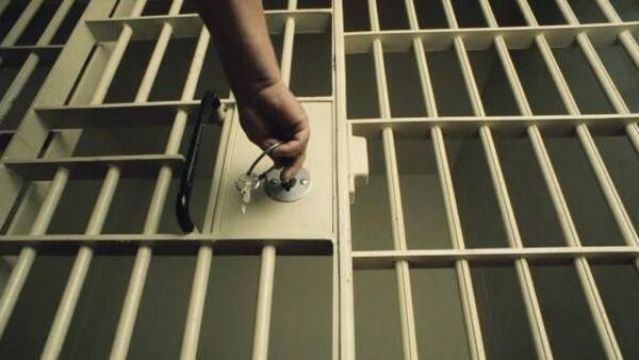A High Court judge has refused to extradite a man to Scotland on humanitarian grounds after noting that prison overcrowding would see him locked up for 22 hours a day with less than three square meters of space, while authorities there also had "poor recognition" of neuro-developmental disorders.
Mr Justice Paul McDermott found on Thursday that there was a "real and substantial risk of inhuman or degrading treatment" should the court order the surrender of Richard Sharples (24), who is wanted for allegedly threatening a man with a firearm, stamping on his head and gouging his eyes during a violent assault in Glasgow.
Mr Sharples, with an address at Dromore West, Co Sligo, is wanted by prosecutors in Scotland under a Trade and Cooperation arrest warrant for the two offences alleged to have occurred in Glasgow in September 2021.
The warrant states that Mr Sharples, who suffers with a series of mental health issues, is wanted for prosecution by Glasgow Sheriff Court from a warrant dated November 24th, 2021, relating to two charges alleged to have occurred at Cardona Street, Glasgow, on September 16th, 2021.
Mr Sharples, represented by Tom Horan BL, is accused of a firearms offence "with the intent to enable another person by means thereof to cause a person to believe that unlawful violence would be used against him", contrary to the Section 16 of the 1968 Firearms Act.
It is further alleged that he struck the victim with a brick, gouged his eyes, repeatedly punched and kicked him and stamped on his head, contrary to Common Law, causing serious injury and endangerment of life.
At an extradition hearing of the High Court on Thursday, Mr Justice Paul McDermott said he was refusing the extradition request on humanitarian grounds relating to Scottish authorities not being able to guarantee that Mr Sharples' mental health needs would be specifically attended to.
Mr Justice McDermott said the case was a "troubling" one relating to the care of Mr Sharples' conditions of ADHD, anxiety, depression, insomnia and Asperger's syndrome.
Mr Justice McDermott said that queries made by the High Court regarding Mr Sharples' possible confinement at either Barlinnie or Low Moss prisons in Glasgow had not been adequately addressed by Scottish prison authorities.
Overcrowding issues
Mr Justice McDermott said psychiatrist Professor Patricia Casey had identified specific steps to improve Mr Sharples' position within a prison environment which were not specifically addressed by Scottish prison authorities who, in addition, had overcrowding issues.
The judge said the "outstanding matter" to consider was whether or not the surrender of Mr Sharples to Scottish authorities could result in "inhuman or degrading treatment".
Mr Justice McDermott said that Mr Sharples could not be left alone for long periods and had never lived independently.
The judge said that Mr Sharples would have found prison "much more severe than those without these conditions".
Mr Justice McDermott said 2022 reports on the Scottish prison system showed a "poor recognition of neuro-developmental disorders", which would amount to a "serious burden" for Mr Sharples.
"Scottish authorities were asked for a specific assurance regarding Mr Sharples but it was not forthcoming," said the judge.
Mr Justice McDermott said the Scottish authorities did not respond to a request for assurances of specific care for Mr Sharples but outlined general health and NHS policies instead.
The judge said the response from Scottish prison authorities "fell far short of addressing Dr Casey's concerns" and that it "simply fails to directly engage with the court's concerns".
Human rights
Mr Justice McDermott said the response to a "modest request" did "not adequately address" concerns, causing him to believe that there could be a "real and substantial risk of inhuman or degrading treatment", contrary to Mr Sharples' human rights.
Mr Justice McDermott noted that should Mr Sharples be surrendered, his incarceration in Barlinnie prison, which is at 132 per cent prison population capacity, would see the appellant confined to a cell for 22 hours a day in circumstances that permitted less than three square-metres of space per prisoner.
"There is no indication that this will be adequately addressed. The real and substantial risk is exacerbated by his conditions which will be of a continuing nature," said the judge, who then declined Mr Sharples' surrender.
"There was no real attempt to engage with his [Mr Sharples'] needs in a direct or specific way," said Mr Justice McDermott.







